3 min read
Honchō Scoops Up Two UK Search Awards!
It’s official, we've added not one, but two shiny trophies to our awards cabinet! We’re over the moon to share that we’ve triumphed at the UK Search...
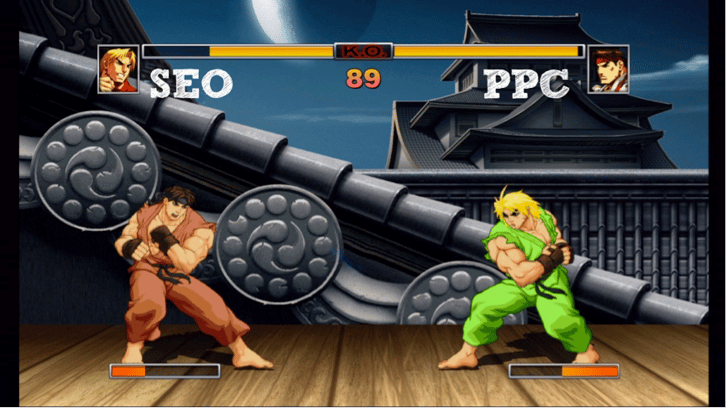 I’m the SEO manager at iThinkMedia. I think SEO is awesome. I know a little about PPC, (enough to get by!) but we have a team of dedicated experts in the field so I leave it to them. But that doesn’t mean our disciplines don’t cross-over. In fact, SEO and PPC are intrinsically linked. PPC data can provide a wealth of useful insights when it comes to SEO keyword research, which is immensely useful as
Google’s [not provided] tips on average 80% for most sites. So PPC can really help in a
research phase, but how can on-going analysis and tests help improve the efficiencies of both channels? Well it would be great to know which channel is best suited to providing the highest ROI achievable.
I’m the SEO manager at iThinkMedia. I think SEO is awesome. I know a little about PPC, (enough to get by!) but we have a team of dedicated experts in the field so I leave it to them. But that doesn’t mean our disciplines don’t cross-over. In fact, SEO and PPC are intrinsically linked. PPC data can provide a wealth of useful insights when it comes to SEO keyword research, which is immensely useful as
Google’s [not provided] tips on average 80% for most sites. So PPC can really help in a
research phase, but how can on-going analysis and tests help improve the efficiencies of both channels? Well it would be great to know which channel is best suited to providing the highest ROI achievable.
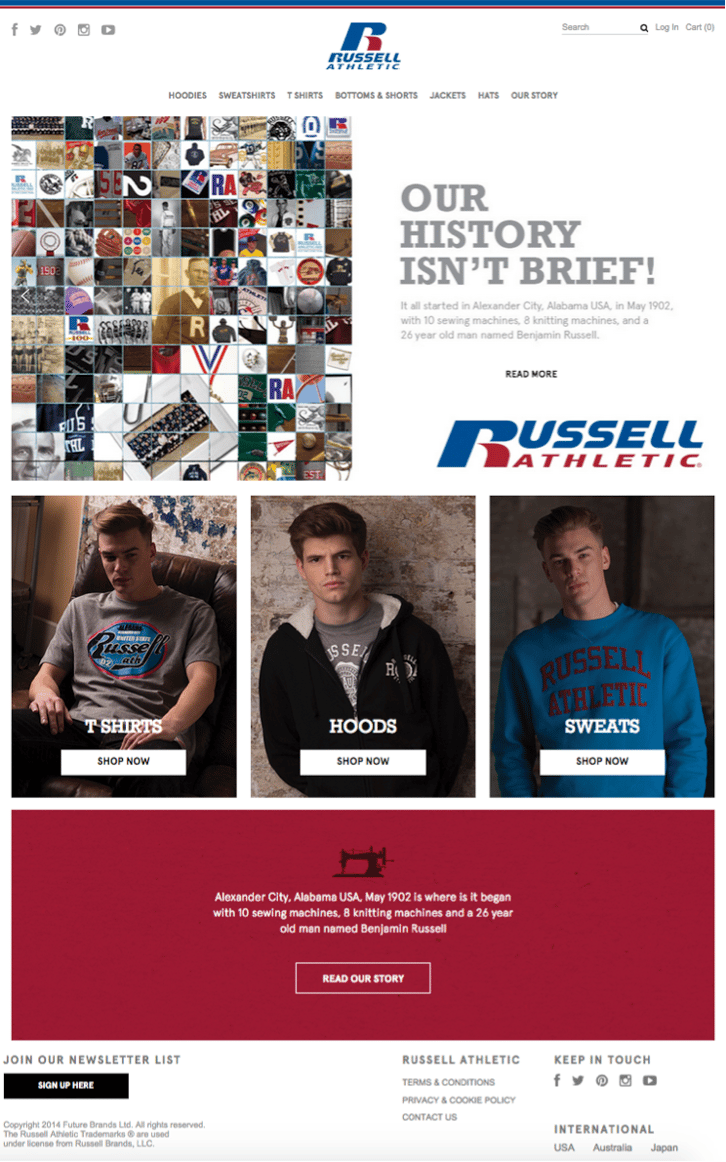
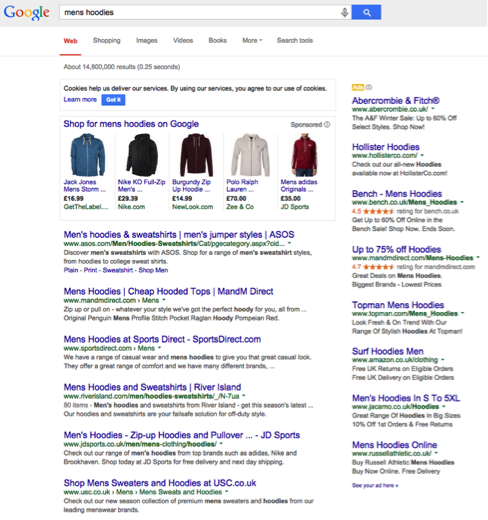 Looking at a few popular generic terms, Russell Athletic is bidding on “mens hoodies” showing up in position 8. Google Keyword Planner estimates it would cost £1.79 per click to appear first. Whilst Russell Athletic are unlikely to be paying as much as this (Quality Score depending), things still do not look good for generating a healthy ROI. Theoretically an estimate of £1.19 is more realistic. Using average search volume of 8,100 and ranking in 6th, estimated costs for Russell Athletic to drive 84 PPC visitors is £99.96. Click through rates have been calculated at 1.04% for position 6.
Looking at a few popular generic terms, Russell Athletic is bidding on “mens hoodies” showing up in position 8. Google Keyword Planner estimates it would cost £1.79 per click to appear first. Whilst Russell Athletic are unlikely to be paying as much as this (Quality Score depending), things still do not look good for generating a healthy ROI. Theoretically an estimate of £1.19 is more realistic. Using average search volume of 8,100 and ranking in 6th, estimated costs for Russell Athletic to drive 84 PPC visitors is £99.96. Click through rates have been calculated at 1.04% for position 6.
Let’s look at another term that Russell Athletic are clearly trying to target, according to their site navigation:

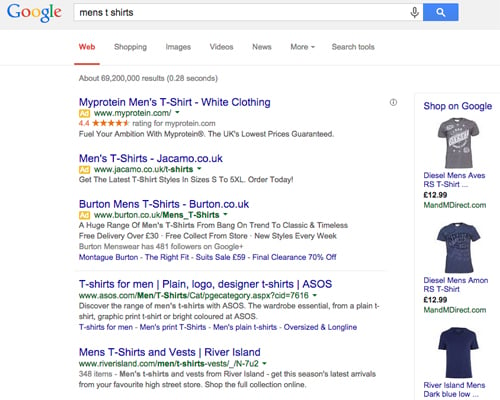 Russell Athletic achieves PPC position 11 for the term “mens t shirts”. Google Keyword Planner shows a suggested bid of £1.69 in order to rank first in paid results. Russell Athletic is more realistically going to pay around £0.79 per click. Again using our CTR data for PPC keywords and an average position of 10, we can estimate that Russell Athletic receive 43 PPC visitors at a cost of £33.97 from a click-through rate of 0.43%.
Russell Athletic achieves PPC position 11 for the term “mens t shirts”. Google Keyword Planner shows a suggested bid of £1.69 in order to rank first in paid results. Russell Athletic is more realistically going to pay around £0.79 per click. Again using our CTR data for PPC keywords and an average position of 10, we can estimate that Russell Athletic receive 43 PPC visitors at a cost of £33.97 from a click-through rate of 0.43%.
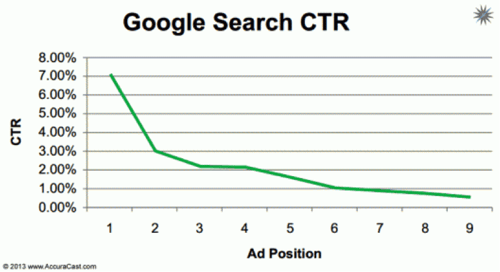
Click Through Rates acquired from Smart Insights article. A great blog by the way!
There are of course many contributing factors as to how accurate these figures are, but I am merely trying to show the logic and value behind analysing PPC versus SEO performance. The question the above would raise for me would be how valuable are those clicks? Taking the “mens t shirts” as an example, it could be estimated a 2% conversion rate (average for our retail clients) whilst a realistic average order value for a t shirt could be £20. So for every 100 PPC visits, only 2 convert generating £40. The 43 PPC visitors Russell Athletic would logically receive would therefore only generate £20 in revenue (1 order) from a £42.57 spend. Not great. So again, using the “mens t shirts” example, SEO would drive 304 more visits.
So again, using the “mens t shirts” example, SEO would drive 304 more visits.

3 min read
It’s official, we've added not one, but two shiny trophies to our awards cabinet! We’re over the moon to share that we’ve triumphed at the UK Search...

5 min read
Understand ecommerce attribution models which attribution models can maximise your marketing efforts and ROI.

3 min read
Explore how social commerce is changing the way we shop online, blending social interactions with digital commerce for a seamless buying experience.